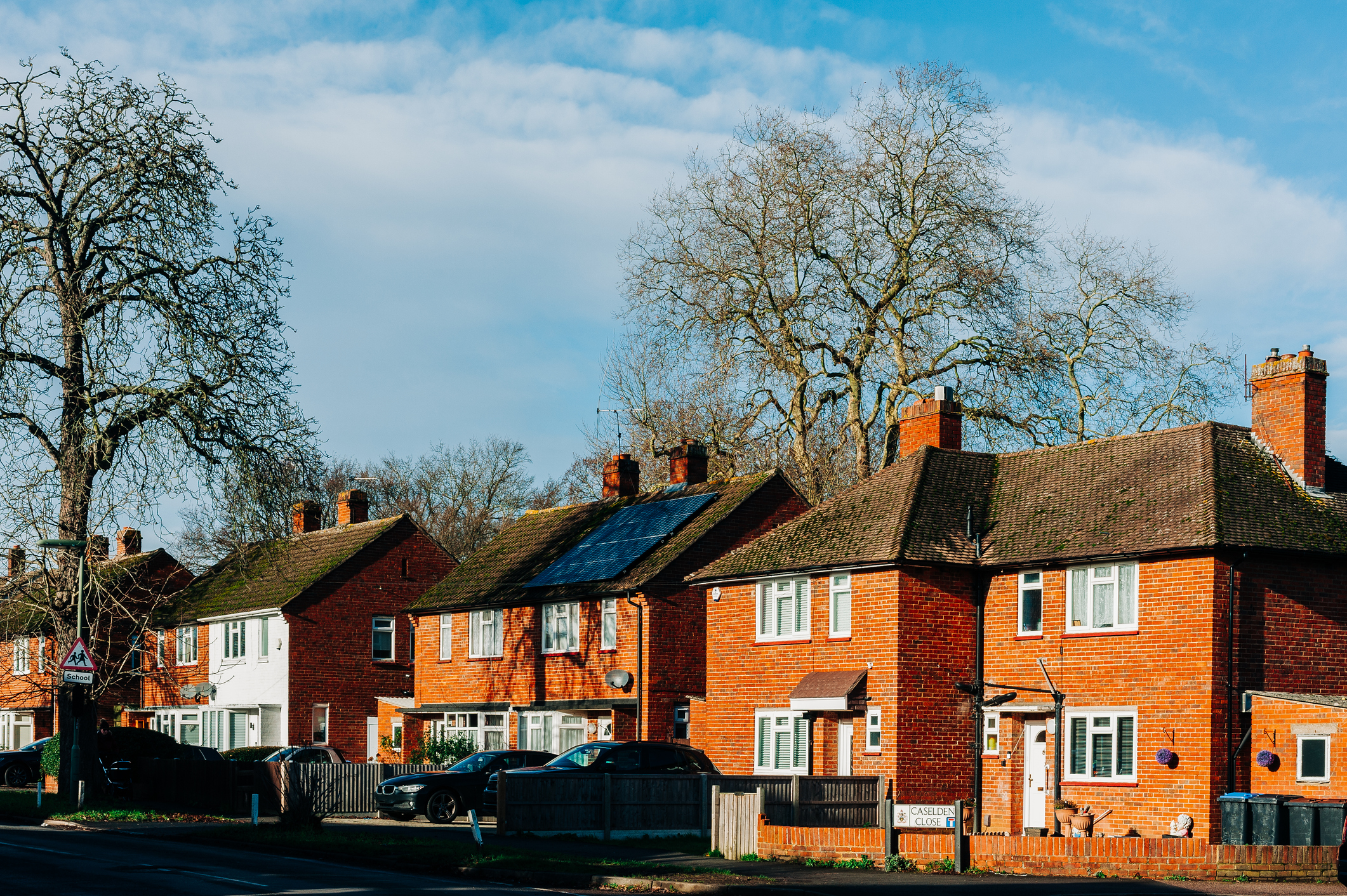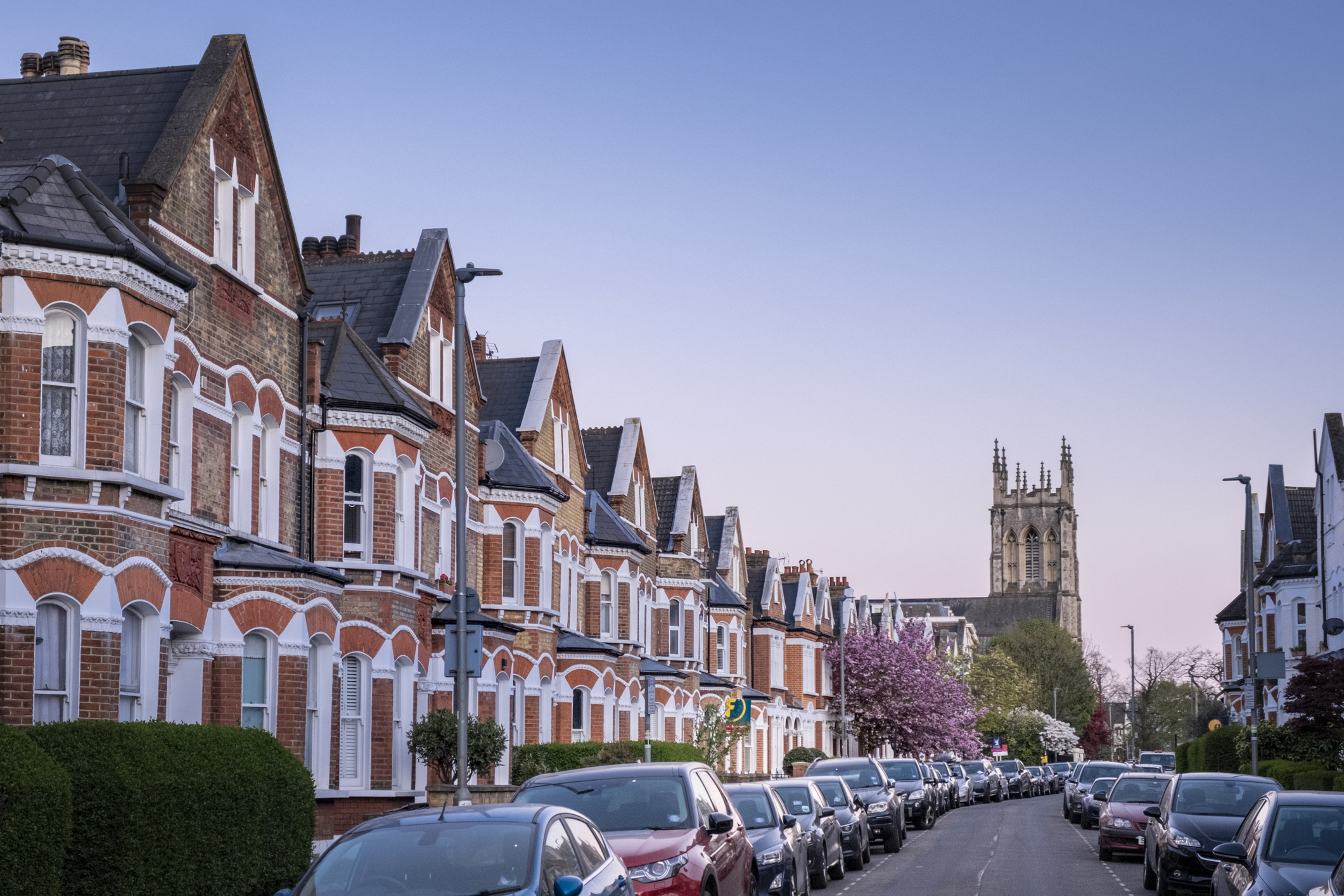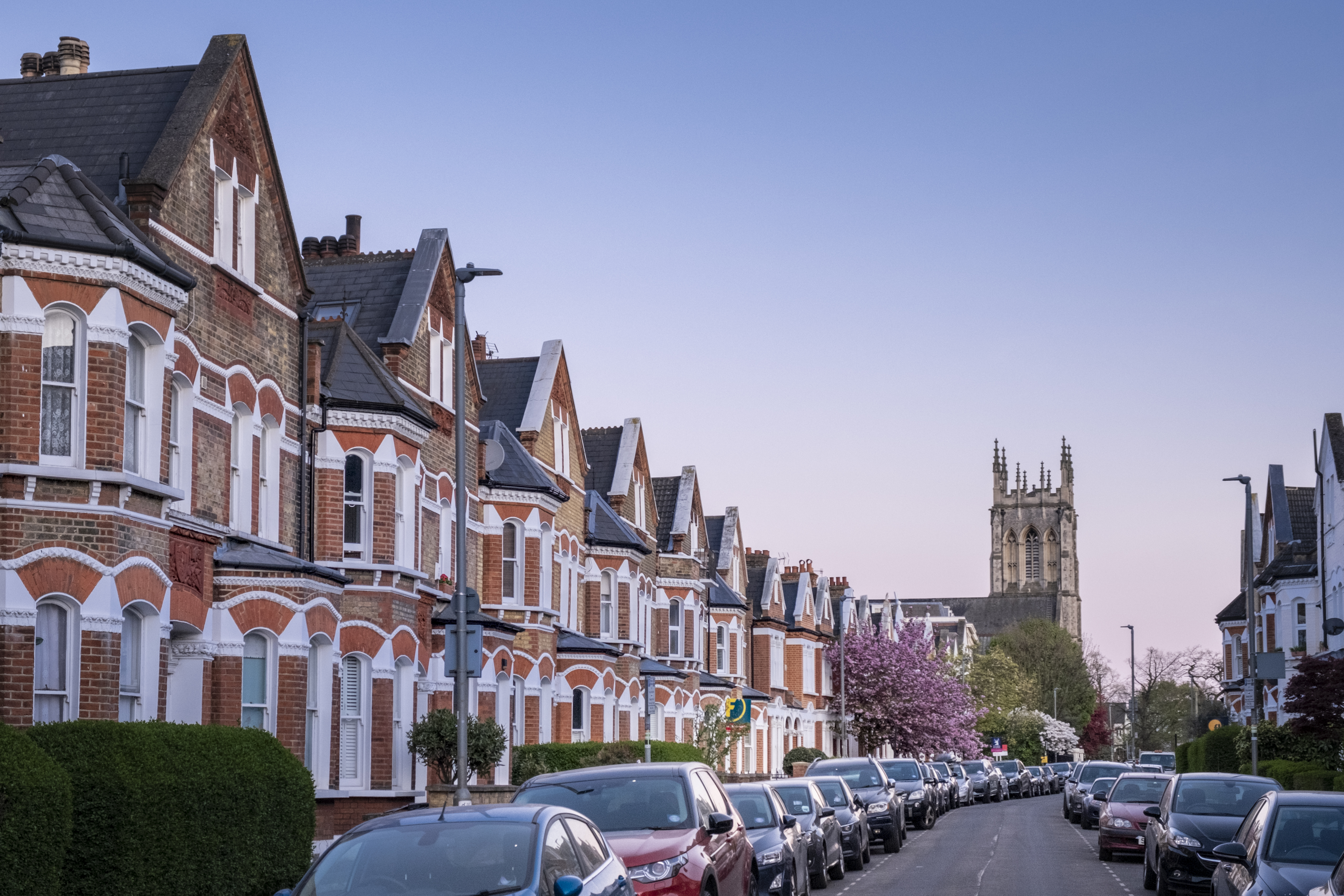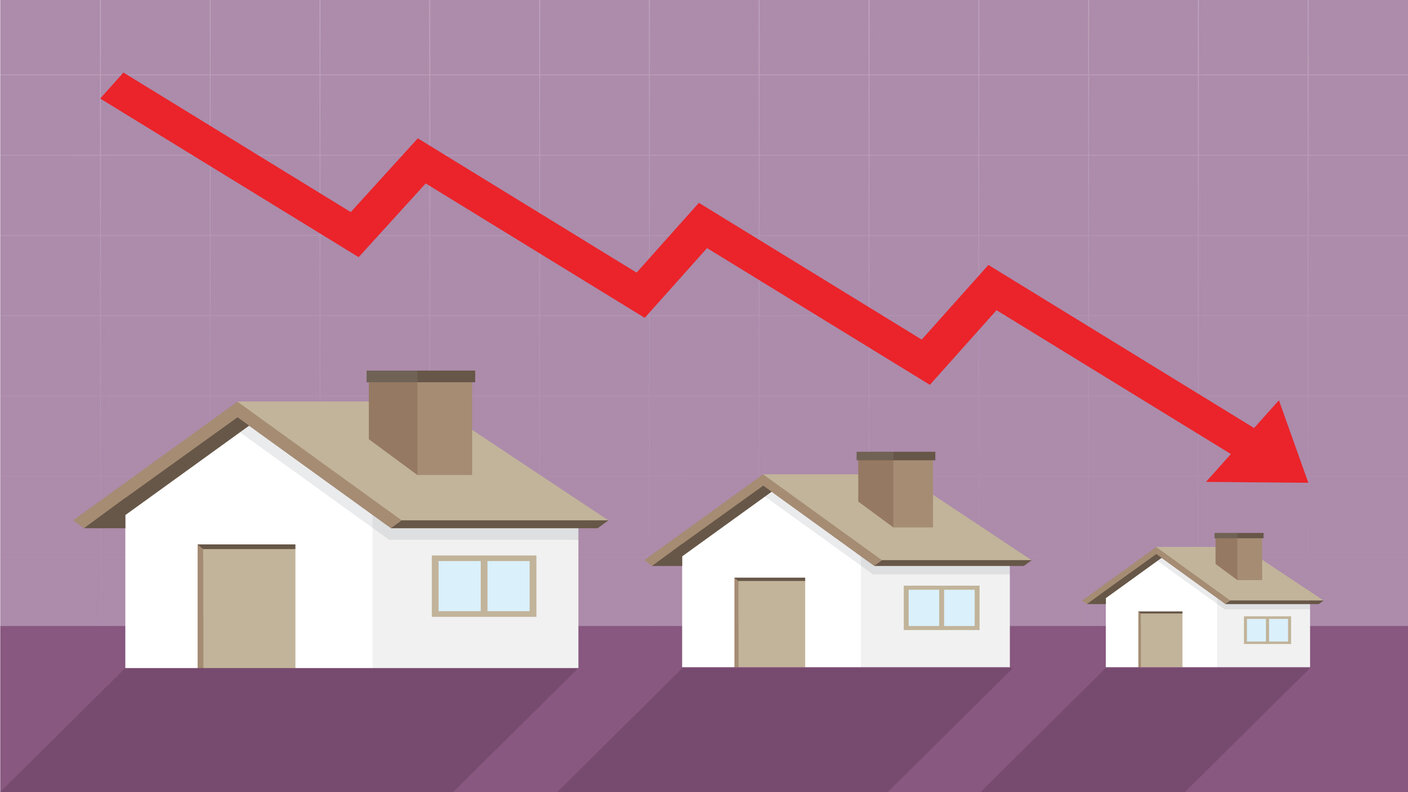Nationwide: House prices fell by 1.8% in 2023 – will they drop further this year?
Nationwide’s latest house price index reveals how the property market performed in 2023


Get the latest financial news, insights and expert analysis from our award-winning MoneyWeek team, to help you understand what really matters when it comes to your finances.
You are now subscribed
Your newsletter sign-up was successful
Want to add more newsletters?

Twice daily
MoneyWeek
Get the latest financial news, insights and expert analysis from our award-winning MoneyWeek team, to help you understand what really matters when it comes to your finances.

Four times a week
Look After My Bills
Sign up to our free money-saving newsletter, filled with the latest news and expert advice to help you find the best tips and deals for managing your bills. Start saving today!
Average property prices ended down 1.8% during 2023 as the cost of living crisis and high mortgage rates weighed on the housing market throughout the year, the latest Nationwide House Price Index has revealed.
A housing market slowdown was expected in 2023 as high inflation combined with rising interest rates and increased mortgage pricing weighed on buyer budgets.
Nationwide’s data, based on its own mortgage lending activity, shows the average property price ended the year at £257,443.
MoneyWeek
Subscribe to MoneyWeek today and get your first six magazine issues absolutely FREE

Sign up to Money Morning
Don't miss the latest investment and personal finances news, market analysis, plus money-saving tips with our free twice-daily newsletter
Don't miss the latest investment and personal finances news, market analysis, plus money-saving tips with our free twice-daily newsletter
The figure was flat on a monthly basis.
Most house price reports showed a drop in average values towards the end of 2023, while Rightmove asking price data shows sellers are listing homes for lower than usual and Zoopla has recorded high levels of discounts on property adverts as homeowners struggle to sell.
Mortgage pricing has started to drop as inflation slowed towards the end of the year, raising hopes of an interest rate cut.
But Nationwide isn’t too optimistic about a housing market recovery.
Robert Gardner, Nationwide's chief economist, said: “A rapid rebound in activity or house prices in 2024 appears unlikely.
“While cost-of-living pressures are easing, with the rate of inflation now running below the rate of average wage growth, consumer confidence remains weak and surveyors continue to report subdued levels of new buyer enquiries.
"Moreover, while markets are projecting that the next bank rate move will be down, there are still upward risks to interest rates. Inflation is declining, but measures of domestic price pressures remain far too high.”
How did house prices perform in 2023?
Most parts of the UK saw average prices fall during 2023, according to Nationwide.
Its data shows East Anglia was the weakest performing region with prices down 5.2% over the year.
Scotland and Northern Ireland bucked the trend, with prices up 0.5% and 4.5% respectively during 2023.
The data is based of Nationwide’s mortgage lending activity so will be reflective of the value of transactions and the typical areas in lends in.
Prices were down 1.8% annually across northern England, where Yorkshire & The Humber was the best performing part despite prices dropping by 0.5%.
Southern England saw a 3.4% year-on-year fall. There was a 2.4% annual price drop in London.
The price of semi-detached properties held up best, recording a 1.8% year-on-year fall, according to Nationwide.
Meanwhile, flats and terraced houses both saw a 2.1% annual decline, while detached properties were the weakest performing with prices down 2.7% over the year.
Karen Noye, mortgage expert at Quilter highlights that the market ended 2023 without the crash that some commentators had predicted, but risks remain.
“For some households, however, things will not be quite so rosy and there is still a risk that we could see more people forced to sell their homes if the financial strain proves too much to bear,” she says.
“The Bank of England opted to hold interest rates at its latest monetary policy decision which will heap pressure onto households next year as more fixed rate deals come to an end, and we could see potential buyers hold off in the hopes of securing cheaper deals in the future. House prices have held up relatively well this year, but we are not yet completely out of the woods.”
What will happen to house prices in 2024?
A further slowdown in prices is expected this year.
Nationwide has forecast that prices will either be flat or will drop by 2% during 2024.
“It appears likely that a combination of solid income growth, together with modestly lower house prices and mortgage rates, will gradually improve affordability over time, with housing market activity remaining fairly subdued in the interim,” adds Gardner.
“If the economy remains sluggish and mortgage rates moderate only gradually, as we expect, house prices are likely to record another small decline or remain broadly flat.”
Zoopla is also predicting a 2% decline but Halifax has predicted a more pessimistic fall of between 2% and 4% in 2024 due to economic market conditions and "affordability pressures."
But Tom Bill, head of residential research at property brand Knight Frank is more hopeful, especially with a general election on the horizon.
"There is growing evidence that the worst of this house price correction is behind us," he says.
"As inflation falls, downwards pressure on mortgage rates means demand should strengthen and transaction numbers will move closer to their longer-term norms in 2024.
"A tight jobs market, the availability of longer mortgages, the fact more homes are owned outright than with a mortgage and the absence of forced selling due to tougher mortgage stress-testing rules since the global financial crisis have all helped avoid steeper price declines as interest rates normalise.
"Pre-election giveaways may boost sentiment further next year although the UK housing market is likely to stutter ahead of the vote itself.”
Get the latest financial news, insights and expert analysis from our award-winning MoneyWeek team, to help you understand what really matters when it comes to your finances.

Marc Shoffman is an award-winning freelance journalist specialising in business, personal finance and property. His work has appeared in print and online publications ranging from FT Business to The Times, Mail on Sunday and the i newspaper. He also co-presents the In For A Penny financial planning podcast.
-
 Last chance to invest in VCTs? Here's what you need to know
Last chance to invest in VCTs? Here's what you need to knowInvestors have pumped millions more into Venture Capital Trusts (VCTS) so far this tax year, but time is running out to take advantage of tax perks from them.
-
 ISA quiz: How much do you know about the tax wrapper?
ISA quiz: How much do you know about the tax wrapper?Quiz One of the most efficient ways to keep your savings or investments free from tax is by putting them in an Individual Savings Account (ISA). How much do you know about ISAs?
-
 Nationwide: UK house price growth bounced back in January
Nationwide: UK house price growth bounced back in JanuaryHouse price growth slowed in 2025 but the new year is showing more positive signs for the property market
-
 Nationwide: House price growth slows but market remained resilient despite Budget worries
Nationwide: House price growth slows but market remained resilient despite Budget worriesThe average price of a house in the UK was £272,998 in November, as annual house price growth slowed to just 1.8%, Nationwide said.
-
 London house prices to outperform rest of UK, says economist
London house prices to outperform rest of UK, says economistAfter years of underperformance, London house prices are set to grow faster than the rest of the country, according to Capital Economics. We look at the reasons behind this forecast – and whether other experts agree
-
 Nationwide: Average house prices rose in January – will property values recover in 2024?
Nationwide: Average house prices rose in January – will property values recover in 2024?News The latest Nationwide house price index shows lower mortgage rates are boosting house prices. What does this mean for the property market?
-
 Nationwide: House prices fall at fastest rate since July 2009
Nationwide: House prices fall at fastest rate since July 2009High borrowing costs continue to undermine the housing market, but some buyers are making their move before rates rise further.
-
 Will mortgage rates fall this year?
Will mortgage rates fall this year?The mortgage price war may be over in a blow for borrowers. Whether you're buying a home, remortgaging or you’re a buy-to-let landlord, we look at the outlook for mortgage rates this year and into 2026
-
 Halifax: House prices bounce in February, but market remains subdued
Halifax: House prices bounce in February, but market remains subduedNews Latest house prices show a rise in February - has the potential house price crash stalled?
-
 Halifax: UK house prices tread water as mortgage costs rise
Halifax: UK house prices tread water as mortgage costs riseNews Halifax’s latest house price index shows the average house price has remained largely unchanged from December.